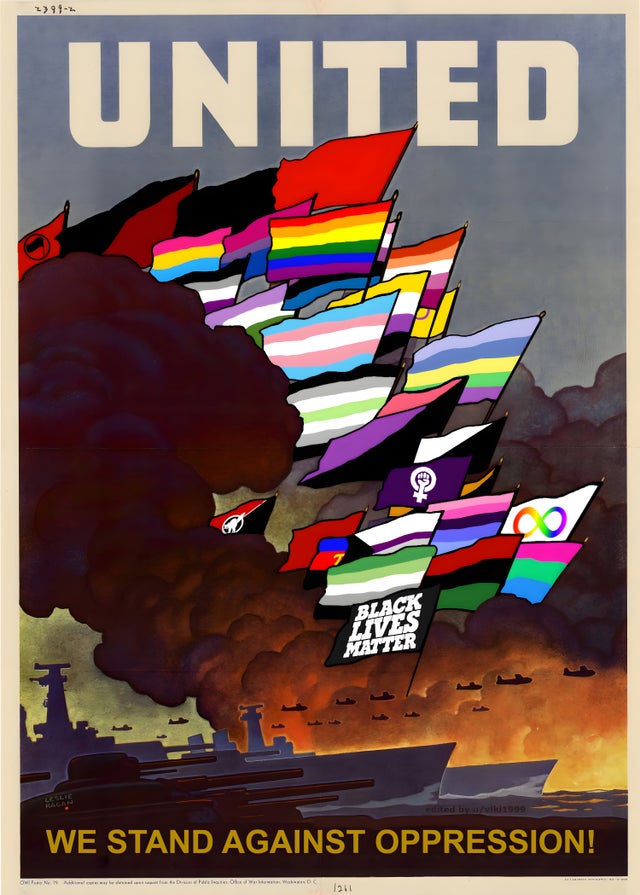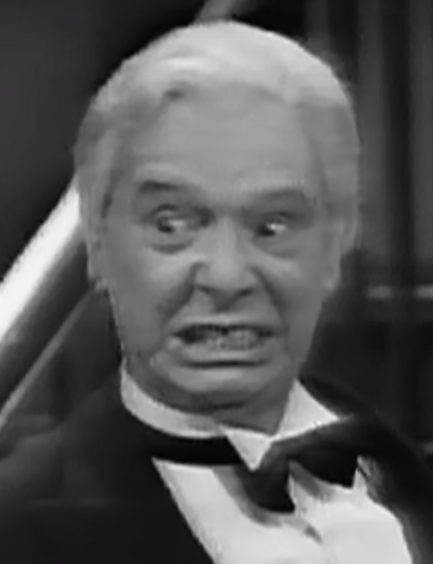Once you learn how to understand and apply historical materialism and break out of capitalist canards like the myth of barter, it becomes much easier to come up with the things that make societies feel evolving, nuanced, and alive: internal struggles, subcultures and countercultures, political movements, economic bases, social mores and customs. That, plus having a variety of real-world examples to draw from to avoid falling into the trap of capitalist realism.
I’ve been thinking about this a lot recently, too. In reflecting on some of the D&D campaigns I’ve run, I realize how much of capitalist life is reflected within them. I’d be interested in hearing how you apply Historical Materialist thinking to world building.
One thing I’ve always wanted to avoid is making other ancestral societies simply be “Human Elves”. Meaning, Elves have all the same economic and political norms that a Human society has. It simply doesn’t make sense to me that a society of people, objectively created by gods, who live for over 750 years (or forever in some settings), would have a gold-based market economy and notions about private property. The same basically goes for Dwarves as well.
If labor is the base of all societies, and the people in some of these societies can live for hundreds of years, what kind of impact does that have on the superstructure of their societies?
Yeah, it’s a lot of fun to think about how people being extremely long-lived or immortal would shape a society. Just off the top of my head, you can’t really disentangle human political development from the idea of inheritance, whether that be inheritance of property or the countless societies that have had some form of hereditary rule.
I’d be interested in hearing how you apply Historical Materialist thinking to world building.
Thanks for asking! To give one example, my most recent project has been a bronze-age society of sapient gryphons (who have the talon dexterity to use tools and do other human things). Having just come off reading David Graeber’s Debt: The First 5000 Years, I remembered a section describing how currencies like metal coins in many cases ended up being marked and used as forms of credit ledgers, and reading about how during food shortages, ancient states would often do some form of grain distribution to stave off the worst of famine.
From these, I came up with the idea of a sort of welfare system where, during times of famine, the gryphon society’s state issues monthly tin coins, each entitling a citizen to a share of millet from the palace granaries. The first three times the coin is redeemed, it’s punched, and the fourth and final time, the coin itself is turned in, to be melted down and recast for next month’s distribution. In effect, the coins act as a sort of bronze age ration cards. Tin was chosen for its low melting point (handy to use for things you’re repeatedly recasting) and because I’d earlier established that the society was known for its expert bronzeworking, implying that it had access to appreciable tin deposits.
Lmao on the other hand it has made my lib DMs worldbuilding seem pretty barren. He had a sport of company town with no formal government, but the police still existed. We asked who employed the police, and he said the government. We asked him what government, and he said “the important people pay them.” So far so good if you wanna make a crypto fascist Dystopia, but he didnt. He wanted it to be kind of a fantasy company town with a repressed working class, but he also wanted to have cool wacky frontier type of government that were the good guys, so they couldn’t be repressive. So he imported social and material conditions of the time period around Battle of Blair mountain, but sort of took everything in our modern society for granted. Police, the law, who makes it, why we follow it, why the cops uphold it, that kind of stuff.
We asked him “why does everyone else go along with the police being around?” And he said “its the law” and we asked “what law?” And he said “you know, the law” and we said “no we don’t know, what law? Like the police say they are the police, but on what authority? What is the social contract that makes them be accepted by society if it is not just brutal repression?” And he went “well it’s not repression unless you break the law.”
And we said “BUT WHO MAKES THE LAW AND WHY WOULD WE GO ALONG WITH IT IF WE HAVENT ELECTED THE PEOPLE WHO MAKE THE LAW OR GOTTEN THE SHIT BEATEN OUT OF US FOR NOT SUBJUGATING OURSELVES?WHY DO PEOPLE ACCEPT THAT THEIR FRIENDS GET KIDNAPPED AND PUT INTO LOCKED ROOMS FOR BREAKING AN AGREEMENT THEY HAVE NEVER ACCEPTED?” and he said “oh they’re elected!” And we said “SO THERE IS A GOVERNMENT?” and he said “no. The people in charge make the law” and we went “but that’s what a government is!” And he went “but nobody pays taxes” and we asked “but then how are the cops being paid?” And he said “the important people pay them” and we said “why do they do this?” And he said “its the law, and also they control the police” and we said “so they’re the government” and he said “no not at all, they don’t make the laws and also they don’t actually control the police” and we were just like
It was like he was pretty much the entire way at describing a fascist police state, but he kept insisting it wasn’t, it was just like now… It was making us crazy because he couldn’t see it himself. Like it wasn’t a joke or some sort of commentary, it was just the most “well it’s a town so it has police. They uphold the law, which people obey, and if they don’t they go to jail, which is how the law works”

He kept trying to insist that the cops ruled by consent, but they had their wages paid for by the corporations, the laws were made by the corporations, people lived in absolute squalor, but kept moving to the town, despite there being nothing (materially or socially) barring them from moving to other towns less than 5 days travel away, or fighting back (despite having established that the working class people were more numerous, had access to FIREARMS in a fantasy setting) They had every reason and means to do an uprising, yet somehow didn’t. It was all just aesthetics. He’s good at aesthetics though, but yeesh guy if you’re gonna do political stuff read a book or two please.
tl;dr my DM assumed the existence of police was a natural occuring phenomen. My DM also assumed “the law” to be some sort of natural occuring phenomenon.
Haha nice, these days when my lib friends ask me what am I doing outside work, I tell them I’m studying worldbuilding irl. They’re like thats awesome, give me some recommendations and I send them texts on Mao’s people’s communes lmao!




